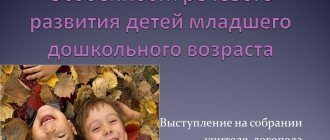Work program for correctional classes of a defectologist with a 3rd grade student (option 1)
WORKING PROGRAMM
teacher-defectologist
for the 2020-2021 academic year
for a child with mental retardation (3rd grade)
EXPLANATORY NOTE.
This program is compiled in accordance with the adapted basic general education program for students with mental retardation; curriculum of secondary school No. 41 for the 2020-2021 academic year; calendar academic schedule of the school for the 2020-2021 academic year; class schedule for the 2020-2021 academic year.
The defectology program was compiled for a 3rd grade student with mental retardation, home-based education, option 1. The development has a training, educational, correctional and social orientation.
The purpose of using this development is: the development of cognitive activity and social adaptation, the development of personal-motivational and analytical-synthetic spheres, memory, attention, spatial imagination and a number of other important mental functions that help develop cognitive activity in a child, eliminating knowledge gaps.
The use of verbal methods in the classroom (story, explanation, conversation) helps in communicating with students. Children with intellectual disabilities have speech development disorders, in connection with this, special attention is paid to the teacher’s speech, which is a model for students: the need for clear pronunciation, correct stress, brightness, expressiveness, slowness of pace, as this deepens understanding, expands vocabulary, promotes the development of coherent speech in students with intellectual disabilities.
Oral presentation of the material is combined with visual and practical exercises. Developmental materials from the “Montessori Materials” set are used as practical tasks, through interaction with which children develop motor skills that affect general, emotional, speech and social development.
To more fully assimilate educational material by children, problem-search and visual methods are used, since visual images of the material being studied are formed in memory faster than those created only on the basis of a speech message; computer and games are used.
One of the main conditions for achieving a positive result is reliance on children’s sensory knowledge and their personal experience. The objects used in the classroom allow us to bring theoretical knowledge and real life closer together.
Another important reason that encourages more active implementation of special developmental exercises is the possibility of using them to effectively diagnose the intellectual and personal development of children with disabilities. This makes it possible to put into practice the principle of unity of diagnosis and correction inherent in the concept of correctional and developmental education, and it is also the basis for targeted planning of individual work.
At the beginning of each lesson, special corrective exercises are included in the organizational moment, which involve the development of the child’s higher mental functions: perception; various types of memory and its processes (memorization, recognition, reproduction); attention; thinking. These exercises help children immediately engage in active cognitive activity and create a positive motivational attitude. These can be “finger” exercises, articulation gymnastics. Before completing each task, detailed instructions are given (for younger students, repeated once or several times), and the teacher can demonstrate the action. The student must learn, evaluate the quality of the task himself and be able to control his actions. The optimal pace of activity is selected, the focus is not on speed, but on quality. When evaluating work, attention is focused on the positive aspect and does not focus on failure. The student must be confident that all difficulties and problems can be overcome and success is possible.
Goals and objectives of the program:
1. Providing optimal conditions for the development of the child’s personality by creating:
- climate of psychological comfort and emotional well-being;
- a developmental environment that provides a wide choice of various forms of activity, among which the child can find those closest to his abilities and inclinations;
- situations of achieving success in extracurricular and educational activities.
2. Subject-oriented organization of joint activities of a child and an adult:
- reliance on the student’s personal experience;
- ensuring a close and understandable goal of the activity;
- individual approach to the child, both in individual and group lessons;
- the use of various types of assistance (stimulating, organizing and training);
- organization of interaction with peers.
3. Carrying out correctional and developmental work within the framework of leading activities:
— development of cognitive activity and social adaptation;
-stimulation of cognitive activity as a means of forming sustainable cognitive motivation;
- use of gaming techniques, elements of competition, didactic games at all stages of the child’s activity.
The training program includes the following main areas:
- Formation of general intellectual skills (operations of analysis, comparison, generalization, identification of essential features and patterns, flexibility of thought processes);
- Development of attention (stability, concentration, increasing volume, switching, self-control, etc.);
- Development of memory (expansion of volume, stability, formation of memorization techniques, development of semantic memory);
- Development of perception (spatial, auditory) and sensorimotor coordination;
- Formation of educational motivation;
- Eliminating knowledge gaps;
- Development of the personal sphere, including the removal of anxiety and timidity characteristic of the adaptation period;
- Formation of adequate self-esteem, development of communication abilities.
Practical significance: by systematizing and analyzing specific manifestations of cognitive activity in children with disabilities, psychological and pedagogical conditions are formulated that make it possible to predict the effective implementation of potential abilities in children.
Main directions of correctional work.
1. Improving movements and sensorimotor development:
- Development of fine motor skills of the hand and fingers;
- Development of calligraphy skills;
- Development of articulatory motor skills;
2. Correction of certain aspects of mental activity:
- Development of visual perception and recognition;
- Development of visual memory and attention;
- Formation of generalized ideas about the properties of objects (color, shape, size);
- Development of spatial concepts and orientation;
- Development of ideas about time;
- Development of auditory attention and memory;
- Development of phonetic-phonemic concepts, formation of sound analysis.
3. Development of basic mental operations:
- Correlated analysis skills;
- Grouping and classification skills (based on mastering basic generic concepts);
- Ability to work according to verbal and written instructions, algorithm;
- Ability to plan activities, development of combinatorial abilities.
4. Development of different types of thinking:
- Development of visual-figurative thinking;
- Development of verbal and logical thinking (the ability to see and establish connections between objects, phenomena and events).
5. Correction of disturbances in the development of the emotional and personal sphere (relaxation exercises for facial expressions, dramatization, role-playing).
6. Development of speech, mastery of speech technique.
7. Expanding ideas about the world around us and enriching the vocabulary.
8. Correction of individual knowledge gaps.
Contents of educational topics.
Development of the analytical and synthetic sphere.
Formation of general intellectual skills (operations of analysis, comparison, generalization, identification of essential features and patterns, flexibility of thought processes);
Formation of adequate self-esteem, development of communication abilities.
Formation of prerequisites for the transition from visual-figurative to abstract-logical thinking: development of the functions of analysis and synthesis, comparison and generalization, abstraction in the development of mathematical and speech skills.
Exercises to search for patterns, generalization, classification of objects, numbers, concepts according to a given classification basis; solving logical problems that require constructing a chain of logical reasoning (analytical problems of the 3rd type with the construction of a “logical square”); reformulation of relationships from direct to reverse, tasks with extra and missing data, unconventionally posed questions; logical justification of the expected result, finding logical errors in the reasoning given (“Eliminate the unnecessary”, “Continue the number series”, “Match a pair”, “Guess the word”, “Complete the ninth”, “Continue the pattern”).
Development of attention
Development of stability, concentration, increased volume, the ability to switch from one type of activity to another, self-control.
Development of self-regulation and the ability to work independently when performing mathematical tasks and working on text.
Independent planning of activity stages.
Development of imagination
Formation of a general ability to search and find new solutions, unusual ways to achieve the desired result, new approaches to considering the proposed situation.
Exercises that require an unconventional approach, tasks of a search nature.
Memory development
Development of memory (expansion of volume, stability, formation of memorization techniques, development of semantic memory);
Development of auditory and visual, short-term and long-term memory when memorizing mathematical and verbal concepts, poetry, prose.
Exercises with increasing volume, complexity and a gradual increase in the storage time of memorized information; mazes from memory or with delayed instructions.
Development of the personal-motivational sphere
Formation of educational motivation;
Development of the personal sphere, including the removal of anxiety and timidity characteristic of the adaptation period;
Development of cognitive interests, activity and independence, self-confidence and skills of joint and individual activity.
Monitoring the level of training:
General characteristics of students’ cognitive activity after each semester:
- tasks for the development of analytical and synthetic activities;
- tasks to develop attention;
- tasks for the development of spatial perception and imagination;
- memory development tasks;
- tasks for the development of the personal-motivational sphere.
Comparative analysis of the development of cognitive activity every six months and at the end of the school year.
Basic requirements for knowledge, skills and abilities.
By the end of the school year, students should be able to:
— make generalizations and conclusions independently;
- classify objects according to their essential characteristics independently;
— eliminate logical errors;
- store in memory and use received instructions.
3rd grade. 1 hour per week, 34 hours.
| date | Lesson topic | The content of the work | Terminology | Contents of the correctional and educational process |
| Diagnostic examination. | ||||
| 1 | "Find differences". LPZ. RR. Autumn. | Formation of knowledge about seasonal changes in nature, formation of knowledge of the names of the autumn months, their sequence. | September October November. | Expanding ideas about the world around us, replenishing the vocabulary. |
| 2 | Sketches on a sheet. LPZ. M. Spatial orientation: right, left, top, bottom. | Formation of spatial orientation skills. | Right, left, up and down. | Development of spatial orientation, development of general motor skills. |
| 3 | People's work in autumn. LPZ. RY. Offer. | Formation of knowledge about what people do in the fall. | Harvest, harvest. | Speech development, vocabulary replenishment. |
| 4 | "Encrypted drawing." LPZ. M. In front, behind, between. | Formation of spatial orientation skills. | In front, behind, between. | Development of spatial orientation, development of general motor skills. |
| 5 | "School". LPZ. Reading syllables, words. Intonation. | Formation of knowledge about school. | Classroom, desk, blackboard, etc. | Speech development, vocabulary replenishment, social and everyday orientation. |
| 6 | “Eliminate the unnecessary.” LPZ. M. Numbers from 1 to 20. Counting forward and backward. | Formation of mathematical skills, stable knowledge of numbers from 1 to 10, writing. | One, two, three,... nine, ten... | Development of mental operations, development of mathematical concepts. |
| 7 | "House" sketches. LPZ. Geometric shapes, segments. | Formation of knowledge about the city, streets, the house in which you live, home address. | City, street, house, address. | Expanding your horizons, replenishing your knowledge base, social and everyday orientation |
| 8 | "Find the differences" LPZ. Logic problems, counting by tens. | Formation of counting skills in tens. | Units, tens. | Development of computational skills, development of mental operations. |
| 9 | "Guess the word". LPZ.RR. "My family". | Formation of knowledge and ideas about family members. | Parents, relatives. | Development of speech, development of attention to surrounding people. |
| 10 | "Similarities and Differences." LPZ. Numbering. | Formation of knowledge of ordinal counting | First, second, etc. | Development of mathematical concepts, development of mental operations. |
| 11 | "Group the items." LPZ. Dictionary. Clothes, shoes. | Formation of knowledge about types of clothing and shoes, their names, purposes, care for them. | Women's, men's, children's, autumn-spring, winter, summer. | Expanding your horizons, replenishing your knowledge base, social and everyday orientation. |
| 12 | “Eliminate the unnecessary.” LPZ.RYA. Dictionary. Vegetables, fruits, berries. | Formation of knowledge about vegetables, fruits, berries. | Potatoes, carrots, etc. | Expanding ideas about the world around us, replenishing vocabulary, developing speech. |
| 13 | “What did the artist mix up?” LPZ. M. Composition of a two-digit number. | Formation of knowledge of the composition of a two-digit number. | Fifteen, sixteen, etc. | Development of memory, development of mental operations. |
| 14 | "Visual dictation". LPZ. RR. Offer. | Formation of knowledge about the proposal. | Offer schemes. | Expanding ideas about the world around us, replenishing vocabulary, developing speech. |
| 15 | "Tangled Paths" LPZ. M. Weight units. | Formation of knowledge about various units of measurement. | Gram, kg. | Development of mental operations, development of memory, development of attention. |
| 16 | "Find differences". LPZ. RY. Vegetables and fruits are different products. Compiling a story. | Formation of skills of classification and differentiation of the concepts of vegetables and fruits. | Vegetables fruits. | Expanding ideas about the world around us, replenishing vocabulary. |
| 17 | Labyrinths. LPZ. M. Units of length. See, mm. | Formation of knowledge about the unit of length cm | Centimeter, Millimeter. | Development of mental operations, development of attention, development of memory. |
| 18 | "Snowball". LPZ.Ch. Winter. Winter fun. | Formation of knowledge about seasonal changes in nature, formation of knowledge of the winter months, their sequence. Formation of knowledge about winter sports and children's winter games. | December January February. | Speech development, vocabulary replenishment, memory development. |
| 19 | "Attentive artist." LPZ.M. Units of length. Dm. | Formation of knowledge about the unit of length dm. | Decimeter. | Development of mental operations, development of attention, development of memory. |
| 20 | “Continue the logical series.” LPZ.RR. Traffic rules in winter. | Formation of knowledge of road safety in the winter season | Ice. | Expansion of horizons, development of rhea, social and everyday orientation. |
| 21 | "Visual dictation". LPZ.M. Problem solving. | Formation of knowledge of the composition of a two-digit number, a brief entry in the problem. | Twenty-one, twenty-two, etc., question, answer. | Development of memory, development of mental operations. |
| 22 | “What did the artist mix up?” LPZ.RYA. Life of animals in winter and spring. | Formation of knowledge about the life of animals and birds in the winter season, formation of knowledge on how to help them. | Feeder. | Speech development, social and everyday orientation, personality socialization. |
| 23 | "Laces." LPZ. M. Addition of numbers. | Formation of the ability to braid, tie, lace. | Bow, lace, knot. | Development of fine motor skills of the hands, development of coordination of movements. |
| 24 | "Composing a story." LPZ. Ch. Trees. | Formation of knowledge about trees, their names, benefits, care | Maple, poplar, etc. | Social and everyday orientation, broadening horizons, developing vocabulary. |
| 25 | “Continue the logical series.” LPZ.M. Numbers within 100. | Formation of knowledge of the numbers hundreds. | Eleven - eleventh, etc. | Development of memory, development of mental operations. |
| 26 | "Similarities and Differences." LPZ.RR. Spring. | Formation of knowledge about seasonal changes in nature, formation of knowledge of the names of the spring months, their sequence. | March April May. | Expanding ideas about the world around us, replenishing the vocabulary. |
| 27 | “Continue the number line.” LPZ.M. Numbers of the first hundred. | Formation of knowledge of numbers 17, 18, 19, etc. | Seventeen - seventeenth, etc. | Development of memory, development of mental operations. |
| 28 | Finding errors in the text. LPZ.RYA. Traffic rules in spring and summer. | Formation of knowledge of road safety in the spring and summer seasons. | Drops, icicles, sunlight. | Expansion of horizons, development of rhea, social and everyday orientation. |
| 29 | “Eliminate the unnecessary.” LPZ.M. Geometric figures. | Formation of knowledge about geometric shapes, similarities and differences. | Square, circle, rhombus, triangle, trapezoid. | Development of memory, development of mental operations. |
| 30 | "Encrypted drawing." LPZ.RR. Health protection. | Formation of knowledge about ways to preserve health. | Colds, flu, pneumonia, coronavirus infection. | Expansion of ideas, social and everyday orientation, replenishment of vocabulary. |
| 31 | "Labyrinths". LPZ.M. Angles. | Formation of knowledge about angles, their types. | Blunt, sharp, straight. | Expansion of mathematical concepts, development of vocabulary. |
| 32 | "Magic bag" LPZ.Ch. Puppet show. | Formation of the ability to handle a hand puppet theater. | Character, consistency. | Development of mental operations, development of memory, development of attention, development of motor coordination |
| 33 | "Similarities and differences". LPZ.RR. Pets. | Formation of knowledge about appearance, nutrition, benefits, life together with a person, care. | Walking, feeding. | Social and everyday orientation, development of thought processes. |
| 34 | Final diagnostics. |
Literature:
1. Voznyak I.V., Godovnikova L.V. “Integration of children with disabilities
health in the educational process", Volgograd: Teacher, 2015.
2. Ekzhanova E.A., Strebeleva E.A. Systematic approach to program development
correctional and developmental education for children with intellectual disabilities //
Defectology, 1999. No. b. pp. 25 - 34.
3. Epifantseva T.B, Kiselenko T.E. “Handbook for a teacher-defectologist” Moscow,
2005
4. Source: workshop on developmental psychology edited by L.A. Golovey, E.F.
Rybalko.
5. Mozgovoy V.M., Yakovleva I.M., Eremina A.A. “Fundamentals of oligophrenopedagogy” Moscow:
Publishing center Academy, 2006
6. Morozova I.A., Pushkareva M.A. “Acquaintance with the surrounding world” Moscow, 2006
7. Programs of special (correctional) educational institutions of the VIII type:
Preparatory, grades 1-4 / Ed. V.V. Voronkova; 8th edition. - M.:
Education, 2013, -176 p. Approved by the Ministry of Education and Science of the Russian Federation
Federation.
8. Puzanov B.P. "Education of children with intellectual disabilities", Moscow,
2006
9. Ryzhikova D.S. “Development of temporal concepts in younger schoolchildren”, Moscow:
Sphere shopping center, 2015 Khudenko E.G., Ostanina E. Part 1-2 “Practical guide to development
speech for children with developmental disabilities." Publishing house "School", 1992
10. Udalova E.Ya., Metieva L.A. “Development of psychomotor and sensory processes” for
students in grades 1-4 of special (correctional) general education
VIII type institutions.
11. Shvaiko G.S. “Games and play exercises for speech development” Moscow, 1998




